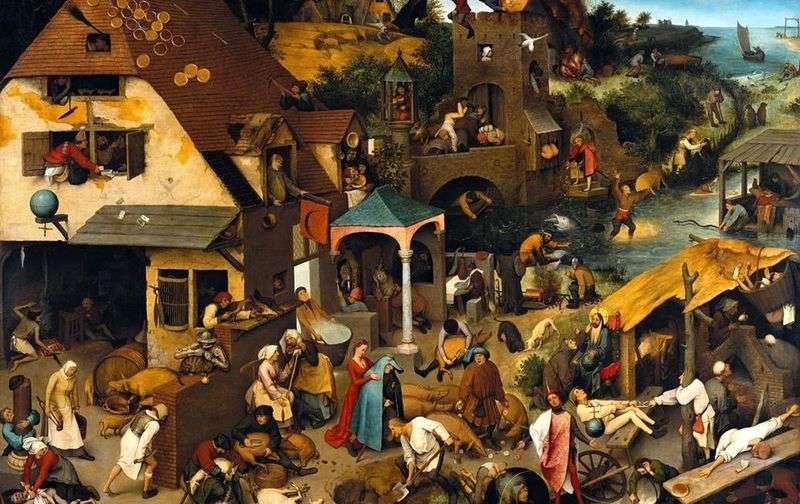
Turning to the national tradition, to folklore and folk proverbs, Brueghel philosophically reinterprets them and, like Erasmus of Rotterdam, creates a panorama of modern society on the basis of folklore. Different vices – avarice, selfishness, gluttony, lasciviousness, etc. – are embodied in the images of living people, their specific actions. Bruegel does not impose on the viewer his conclusions, does not single out the figures of the bearers of vice from the general course of village life.
On the theme of vices and virtues, Peter Bruegel created a series of drawings designed for reproduction in engravings. Collecting proverbs is one of many expressions of the encyclopedic spirit of the 16th century. The beginning of this hobby was laid in 1500 by the great humanist of the epoch of the Northern Renaissance Erasmus of Rotterdam. For his publication of proverbs and famous sayings of Latin authors Flemish and German meetings followed. In 1564, published a satirical novel by Rabelais “Gargantua and Pantagruel,” which describes the island of proverbs.
By 1558, Brueghel had already written the cycle “Twelve Proverbs” consisting of separate small boards. And his “village” of proverbs did not have precedents in the past; it’s not just a set of proverbs, somehow forcefully combined together, but a carefully worked out picture. Identified more than a hundred proverbs and idiomatic expressions, many of which have long been out of use – they reflect a much more frank language of those days! The overwhelming part is about stupid, immoral or insane behavior.
In the gazebo, which is the center of the picture, the devil listens to confession; to the right the monk scoffs at Christ, attaching a beard to him; to the left of it a woman throws a blue cloak on her husband’s shoulders, which means adultery; The globe is fixed on the wall of the house with a pommel down, which means “inverted world”, which becomes the main theme of the picture. By the way, therefore the picture sometimes appears under the title: “The world is upside down.”
One person makes the globe spin on his thumb, and the other does not reach from one roll to another – that is, with the money he has tight. If you spill the porridge, then you can not collect it in a vat with a spoon; and the attempt to open the mouth wider than the oven door, means a clear reappraisal of their abilities. As in the case of “Children’s Games,” Brueghel’s brush is motivated not only by the passion for gathering, but also by a special, rather skeptical attitude toward his contemporaries.
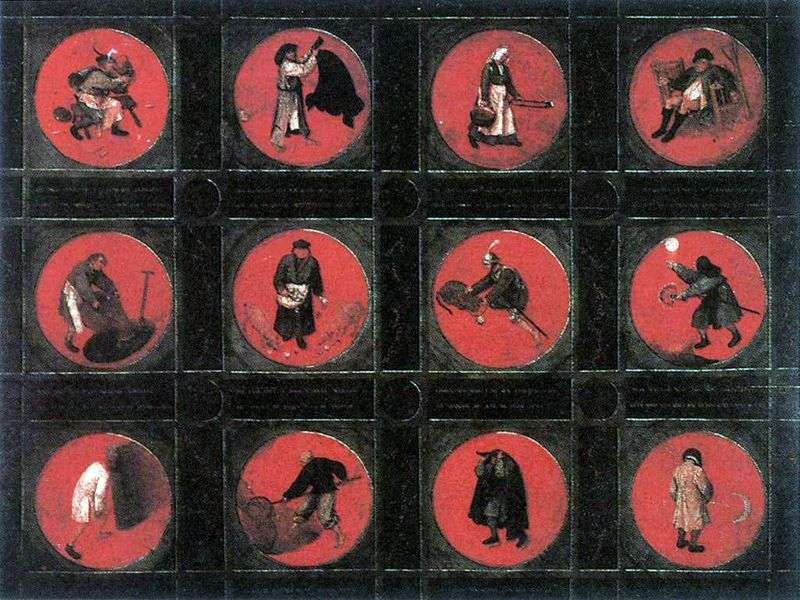 Twelve Proverbs by Peter Brueghel
Twelve Proverbs by Peter Brueghel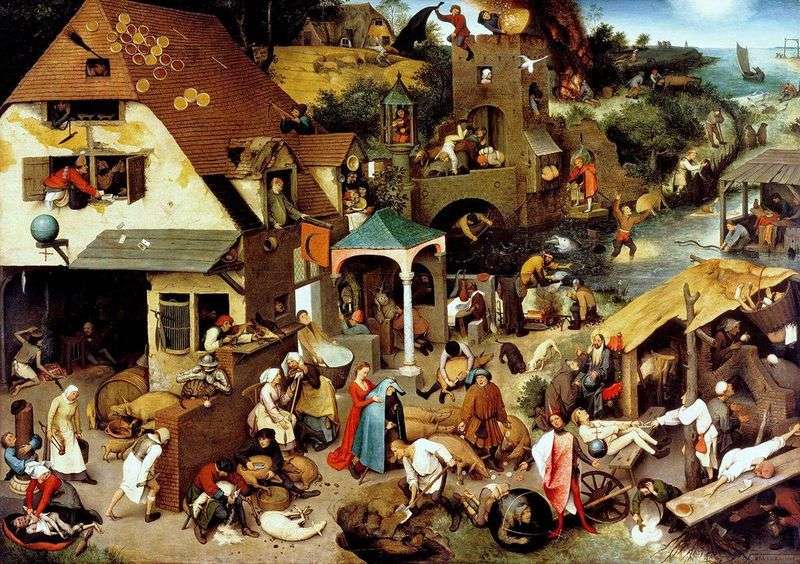 Flemish proverbs by Peter Brueghel
Flemish proverbs by Peter Brueghel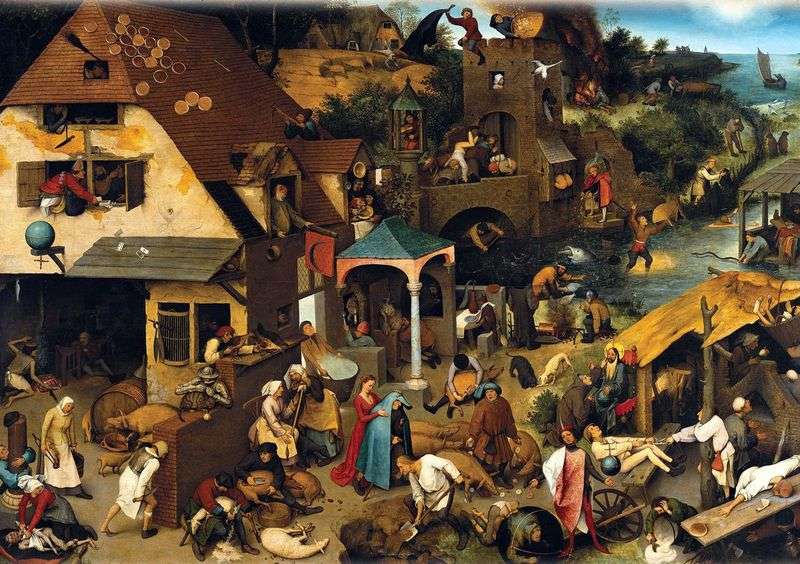 Proverbs (Blue Cloak) by Peter Brueghel
Proverbs (Blue Cloak) by Peter Brueghel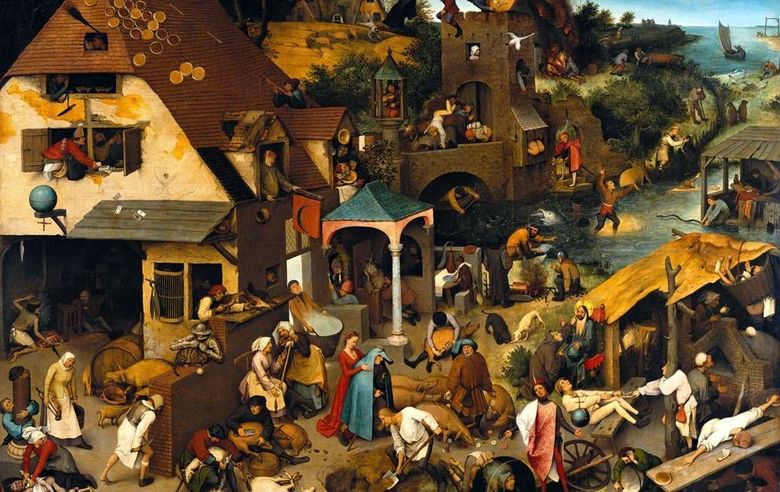 Proverbes néerlandais – Peter Brueghel
Proverbes néerlandais – Peter Brueghel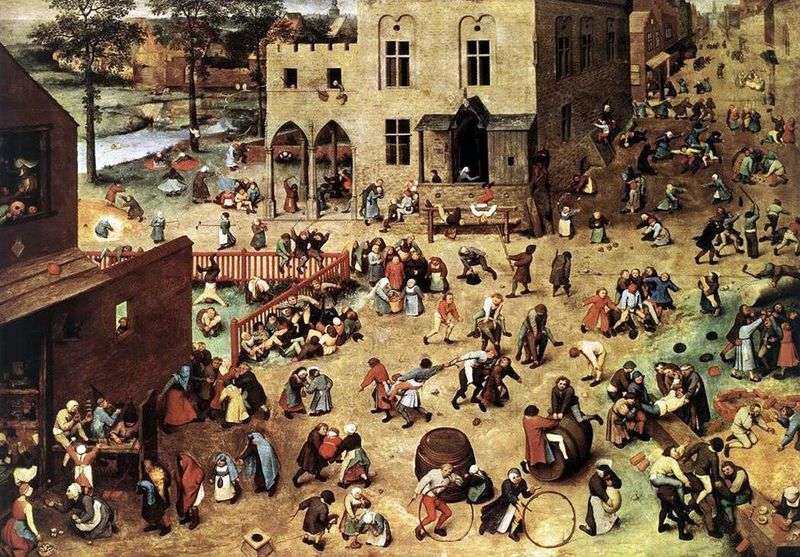 Children’s Games by Peter Brueghel
Children’s Games by Peter Brueghel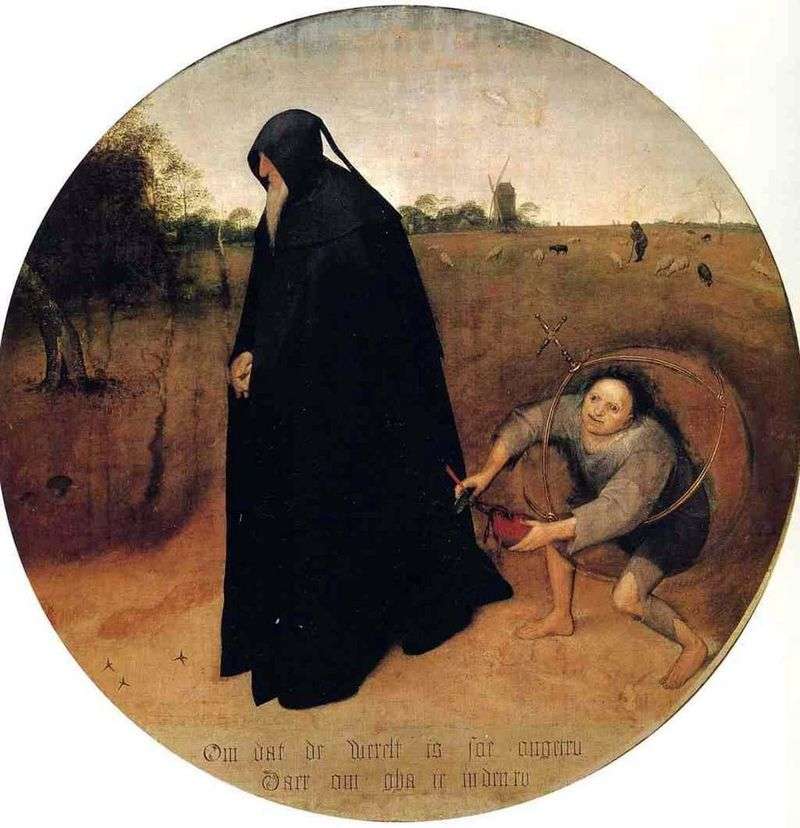 Misanthrope by Peter Brueghel
Misanthrope by Peter Brueghel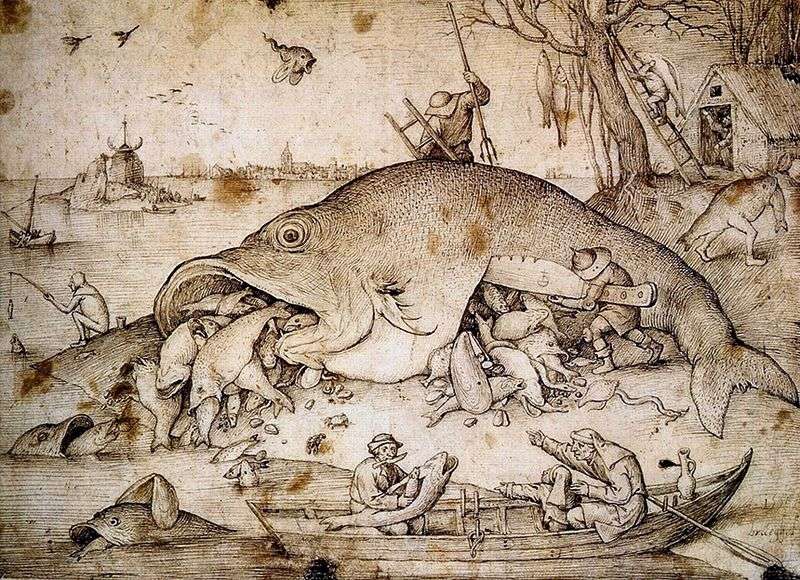 Big fish eat small by Peter Brueghel
Big fish eat small by Peter Brueghel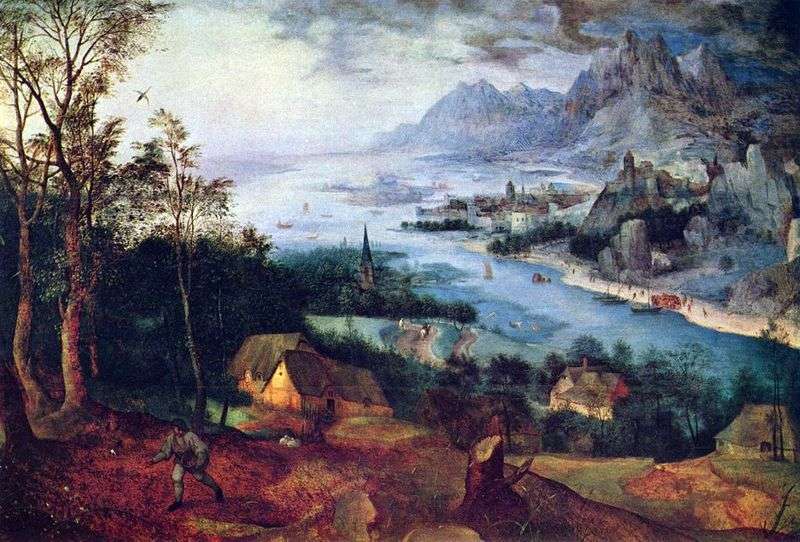 The Parable of the Sower by Peter Brueghel
The Parable of the Sower by Peter Brueghel